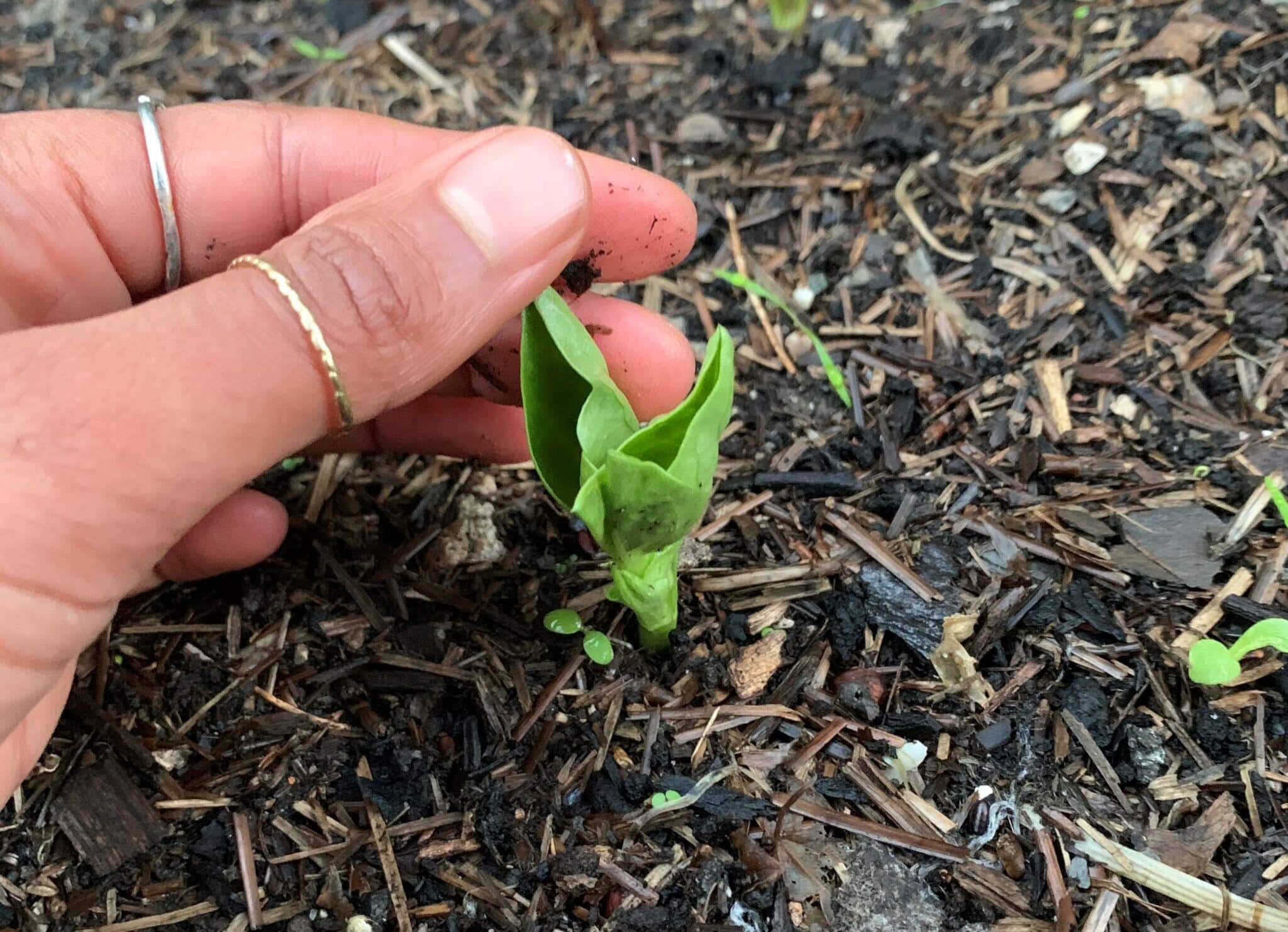Practically Radical is a regular column by ecological grower and forager Poppy Okotcha on gardening and optimism.
Sometimes, standing in this little garden, I doubt the radicalness of growing. Particularly as I wrote this when we were in the awkward space somewhere between winter and early spring and the beds were mainly empty.
The space feels so small and, to be honest, unproductive food-wise, because last year I only managed to get three kale plants in the ground to overwinter. The Elephant garlic was just visible poking up through the soil if you look closely, and one bed of broad beans was stoically squat in the face of the cold and wet, albeit miles from giving me any beans.
But standing in this little garden, I do feel safe, I feel strong and I feel calm. I don’t know if I’m solving the problems of the world, but then again, life was never about solving anything, only a constant muddling. It’s a bit like when you try to untangle a necklace and there’s not much of an end in sight, so eventually you start to quite enjoy the process. Growing and sharing food seems to help with the muddling. Lots of others have thought so too.
“Some people ask me: ‘But where is imperialism?’ Just look on to your plates when you eat. You see the imported corn, rice or millet. This is imperialism. No need to go further. We must produce more, because the one who feeds you usually imposes his will upon you.” These are the words of Thomas Sankara. Thomas was a militant social justice campaigner, committed to freeing his country, Burkina Faso, from its colonial past. Sankara was living through a time in which it was becoming more evident that following political independence, many newly liberated African countries suffered from a lack of economic independence.
Standing in this little garden, I do feel safe, I feel strong and I feel calm.
Colonies left behind infrastructure which had been designed to make the extraction of raw materials efficient, rather than create a cohesive and functioning country. Most states lacked the means to add value to any of the products they could produce. They were dependent (and many still largely are to this day) on trade with their former colonisers.
Sankara believed in preventing famine through agrarian self-sufficiency and land reform, rather than accepting handouts in the form of food aid, which he felt was “counter-productive and has kept us thinking that we can only be beggars who need aid. We must put aside this type of aid and succeed in producing more.” To combat the desertification that was occurring in the country and compromising farming, he had over 10 million trees planted. Central to his policy was the idea of revolutionary self-reliance as a means for liberation.
There are countless movements through history that recognise and even centre the power in food; freedom and food seem somehow inseparable.
There are countless movements through history that recognise and even centre the power in food; freedom and food seem somehow inseparable. Another of my favourites is the Black Panther Party’s ‘Free Breakfast For Schoolchildren Program’, which was recognised by the head of the FBI as “potentially the greatest threat to efforts by authorities to neutralise the BPP and destroy what it stands for.”
It is the humble power in our food that originally drew me to it. Food’s power is rooted in its ability to nourish, not its ability to destroy. It draws people in with the promise of vitality, rather than the threat of annihilation.
It pulls us together, invites recognition of common ground and often it invites us to do something very powerful indeed – to share. Food nourishes us on a practical level, but it also has the potential to bring beauty into our lives. As the saying goes: ‘Bread for all and roses too.’ We need both to thrive.
This column was initially published in the spring-summer edition of Wicked Leeks magazine. You can read the full magazine online for free.










0 Comments